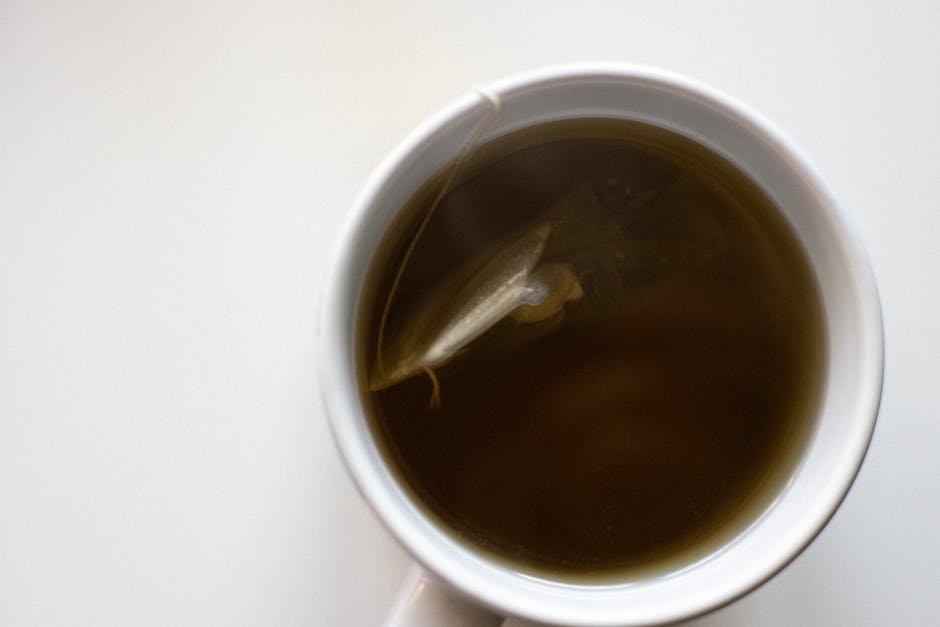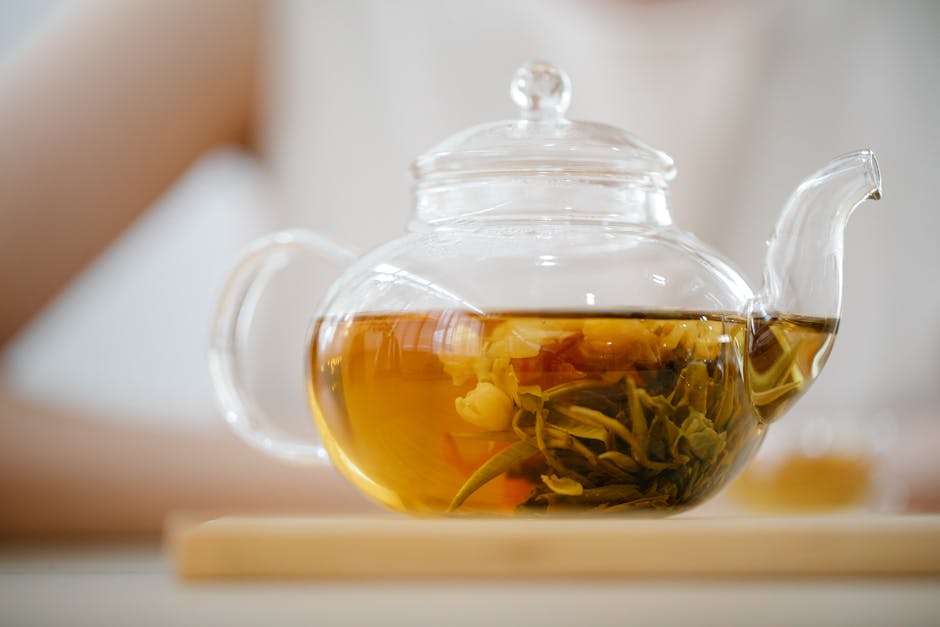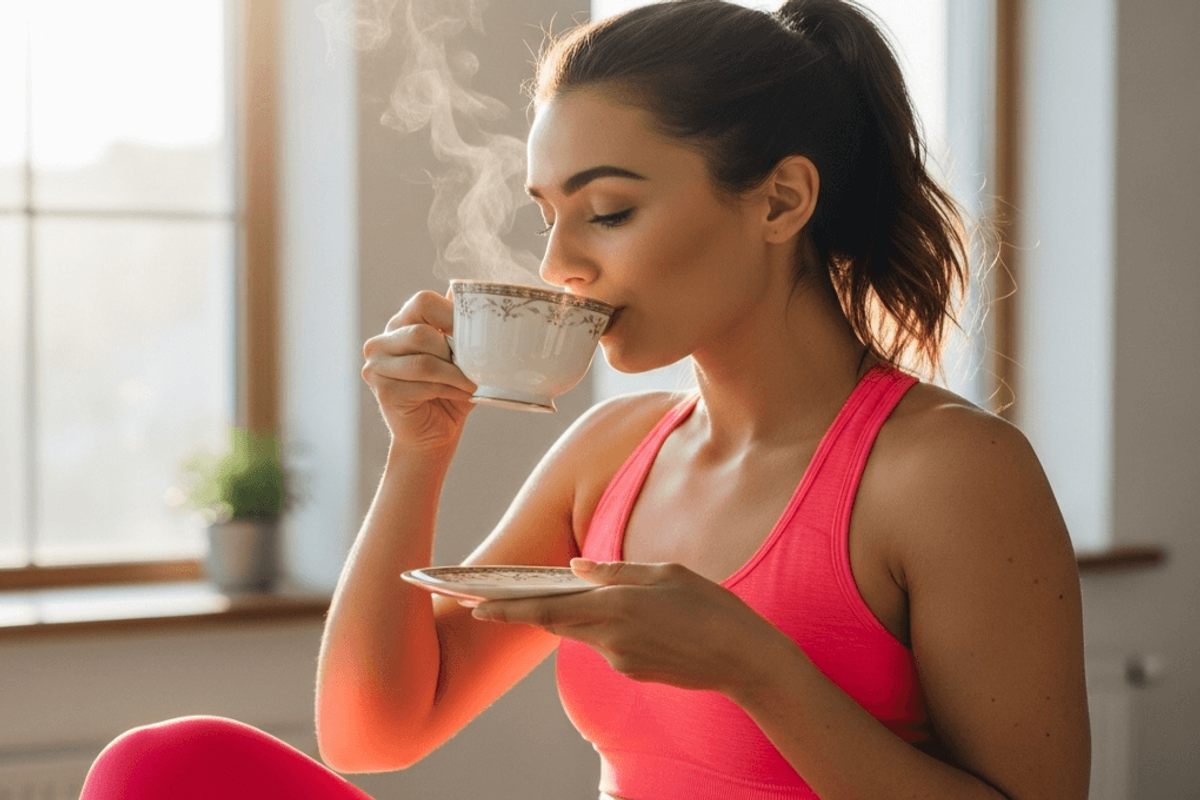This article contains affiliate links. If you purchase through these links, we may earn a commission at no extra cost to you. Full disclosure
Feeling like your metabolism isn’t what it used to be? Certain teas can give it a real, science-backed boost. Here’s which ones work best and why.
📚 Research Sources
⭐ Ready to Boost Your Metabolism Naturally?
Tea Burn is a patent-pending, tasteless formula designed to be added to your tea or coffee. It may help support metabolism, energy, and natural fat burning.
*Individual results may vary. This site contains affiliate links.
How Tea Boosts Metabolism
Your metabolism is every chemical process that keeps you alive - converting food to energy, repairing cells, eliminating waste. Your Basal Metabolic Rate (BMR) is how many calories you burn at rest.
Get Weekly Health Tips
Join thousands getting evidence-based wellness insights delivered free every week.
🔒 No spam. Unsubscribe anytime.
Certain teas boost metabolism through three key compounds:
- Catechins (especially EGCG): Powerful antioxidants with thermogenic properties - they help your body produce more heat and burn more calories
- Caffeine: Increases energy expenditure and fat burning, improves exercise performance
- Polyphenols: Reduce cellular stress and support overall metabolic health
Together, these compounds increase thermogenesis, enhance fat oxidation, and improve insulin sensitivity.
Top 5 Metabolism-Boosting Teas

1. Green Tea (The Metabolism Powerhouse)
Tops the list consistently. Rich in EGCG and moderate caffeine. Steep 1 tsp in 175°F water for 2-3 minutes. Best in the morning or before exercise.
2. Oolong Tea (Fat Oxidation Enhancer)
Partially fermented - unique blend of polymerized polyphenols plus catechins and caffeine. Use 1-2 tsp per cup at 195°F, steep 3-5 minutes. Can be re-steeped multiple times.
3. Black Tea (Fermented Fat Fighter)
Fully fermented with unique theaflavins and thearubigins, plus higher caffeine than green or oolong. Boiling water, 3-5 minutes. Studies show it promotes visceral fat reduction.
🧪 What Our Research Points To
Based on the metabolic research we’ve reviewed, one formula combines the thermogenic compounds discussed above into a convenient daily supplement.
- Natural metabolism-boosting ingredients at clinical dosages
- Designed to work with your morning tea or coffee
- 60-day money-back guarantee - try it risk-free
No subscription required · Affiliate disclosure
4. White Tea (Gentle Fat Blocker)
Least processed, highest catechins due to minimal processing, lowest caffeine. Test-tube studies suggest it may stimulate fat breakdown and prevent new fat cell formation. Brew at 170°F for 4-8 minutes.
5. Herbal Teas with Metabolic Benefits
- Ginger tea: Thermogenic properties and digestive support
- Hibiscus tea: May help regulate blood pressure and support weight management
- Peppermint tea: Aids digestion and reduces bloating
Maximizing Your Tea’s Metabolic Potential

- Quality matters: Loose-leaf teas generally contain higher concentrations of beneficial compounds than tea bags
- Proper brewing: Follow recommended temperatures and steeping times for each type
- Consistency: 2-3 cups daily yields the best results over time
- Pair with healthy habits: Tea supports metabolism but works best alongside balanced diet, exercise, and adequate sleep
FAQ
How much tea should I drink daily?
2-3 cups of metabolism-boosting teas daily provides noticeable benefits. Consistency matters more than quantity.
Can tea alone help me lose significant weight?
Tea enhances fat burning and energy expenditure, but works best combined with balanced diet and regular exercise. It’s a powerful enhancer, not a replacement for healthy habits.
Are there side effects from too much metabolic tea?
Excessive intake can cause jitters, anxiety, insomnia, or digestive upset due to caffeine. Green tea can slightly inhibit iron absorption - drink between meals if concerned.
What makes Tea Burn different from regular tea?
Tea Burn is a patented blend of natural ingredients designed to enhance the metabolism-boosting effects of any tea. It’s tasteless and complements your tea without changing flavor.
About Us: The YWHL Editorial Team researches health, wellness, and nutrition topics by analyzing published studies and clinical data. Our goal is to help readers make informed decisions about their health. This content is for educational purposes only - always consult your healthcare provider before starting any supplement or health program.
Some of the links on this site are affiliate links, which means we may earn a commission if you click through and make a purchase, at no additional cost to you. None of the information in this blog is medical advice. It is simply for educational purposes only.
Related Reading
Related Articles
📋 Our Research-Backed Recommendation
Based on our analysis of metabolism and weight management research, this supplement uses natural compounds shown to support healthy metabolic function. Try it risk-free with a 60-day guarantee.
*Affiliate link - we may earn a commission at no cost to you. Full disclosure


1 thought on “Boost Metabolism: Best Teas for Fat Loss (Science-Backed)”
Comments are closed.